Navigating the mental healthcare system as a neurodivergentAn individual whose brain functions differently from the (usually neurotypical) perception of what is “normal”. For example, an individual with autism, Asperger’s syndrome, dyslexia, dyscalculia, dyspraxia, ADHD, OCD or Tourette Syndrome. individual can be challenging, especially when also dealing with the effects of past trauma. Trauma-focused therapy is a specialised approach that can be enormously beneficial, but it’s important to find a therapist who understands the unique needs of neurodivergentAn individual whose brain functions differently from the (usually neurotypical) perception of what is “normal”. For example, an individual with autism, Asperger’s syndrome, dyslexia, dyscalculia, dyspraxia, ADHD, OCD or Tourette Syndrome. clients.
Neurodivergence, which encompasses conditions like autismA complex developmental condition which can significantly affect verbal and non-verbal communication and social interaction in a range of ways., ADHD, and other neurological differences, often involves distinct cognitive processing, communication styles, and sensory experiences. This can profoundly impact how trauma is experienced and expressed. Neurodivergent individuals may struggle with issues like emotion dysregulation, hypersensitivity, and difficulties forming trusting relationships – all of which are central to the trauma healing process.
Trauma-focused therapists at NeuroTribe tailor their approach to meet your specific needs. This could include:
Utilising structured, predictable session formats
Suggesting sensory accommodations like fidget toys or lighting adjustments
Pacing the exploration of traumatic memories at a gradual, comfortable rate
Emphasising clear communication of boundaries and treatment plans
Incorporating modalities like EMDR, somatic therapy, or art/music therapy

Our Trauma-Focused Team comes from diverse racial and cultural backgrounds, with both lived and professional experience, and extensive training in racial and cultural marginalisationWhen a person, group or concept is treated as insignificant, inferior, isolated or unimportant.. This uniquely equips us to provide support for working through racialised and intergenerational traumaWhen trauma gets passed down generations in families, from a person who has directly experienced it. This ‘passing down’ of trauma can be expressed genetically, psychologically, or through behaviours. .
Intergenerational traumaWhen trauma gets passed down generations in families, from a person who has directly experienced it. This ‘passing down’ of trauma can be expressed genetically, psychologically, or through behaviours. , or transgenerational trauma, refers to psychological and emotional effects passed down from one generation to the next. This occurs when trauma experienced by an individual or group isn’t adequately addressed or resolved, embedding its effects within the family or community, and manifesting in future generations. Such trauma can stem from events like wars, genocides, abuse, oppression, or other deeply impactful experiences.
We believe that safe and effective work in this area requires more than basic cultural competencyA range of skills that help us to communicate, understand and interact effectively with people from cultures different to our own.. It demands lived experience, ongoing CPDThe learning activities professionals complete to maintain and develop their knowledge and skills. led by diverse practitioners, and a commitment to examining how our privileges and social positioning influence each therapeutic relationship. We understand that traditional therapies are rooted in a Western-centric, colonised education system and require adaptation to serve global majorityA term that refers to people of African, Asian, Latin American and Arab descent who make up 80% of the Earth’s population. and white minoritised people effectively, addressing inherent racial and class biases.
For our clients, it’s crucial to understand how race, culture, social status, and neurodivergence intersect to create unique challenges within the UK context.
Our therapists, internally supervised by clinical supervisors from racially and culturally minoritised backgrounds, use somatic, creative, and narrative methods to support a holistic, embodied approach to the relationship between the mind, body, and soul, and the healing of intergenerational trauma.
We can provide therapy in Romanian and Polish, therapy with an Afro-Caribbean-centric somatic approach, and therapists who have lived experience and passion for the mental well-being of the Jewish diaspora and people seeking refuge from wars and conflicts.
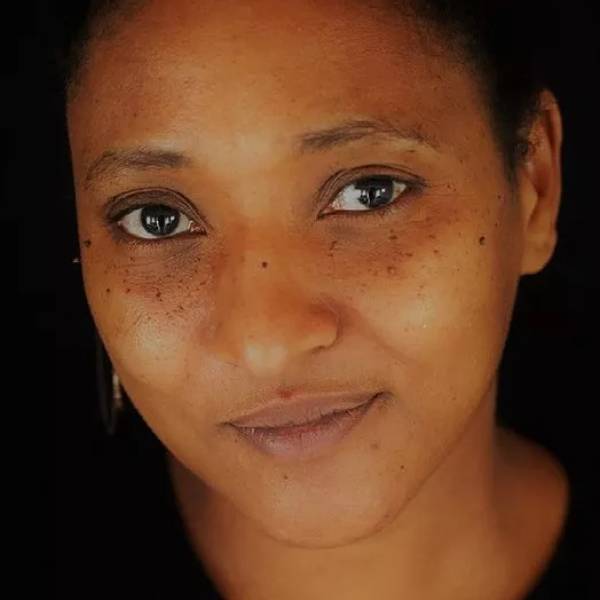
Kyra is a BACP registered integrative counsellor using art therapy, a lecturer in Counselling & Psychotherapy at Kingston College, London, and a former member of the Croydon SEND Parent Forum Steering Group.
She has worked with vulnerable children and young people for over 15 years in schools, pupil referral units, youth groups, colleges, social enterprises and youth arts projects as a youth worker, welfare and enrichment department head, and mental health worker.
She is a member of the BACP (British Association of Counselling and Psychotherapy)The professional association for members of the counselling and psychotherapy professions in the UK., has a PG Cert. in Counselling, an Advanced Diploma in the Therapeutic Application of the Arts, and a Level 7 Diploma in Supervision.
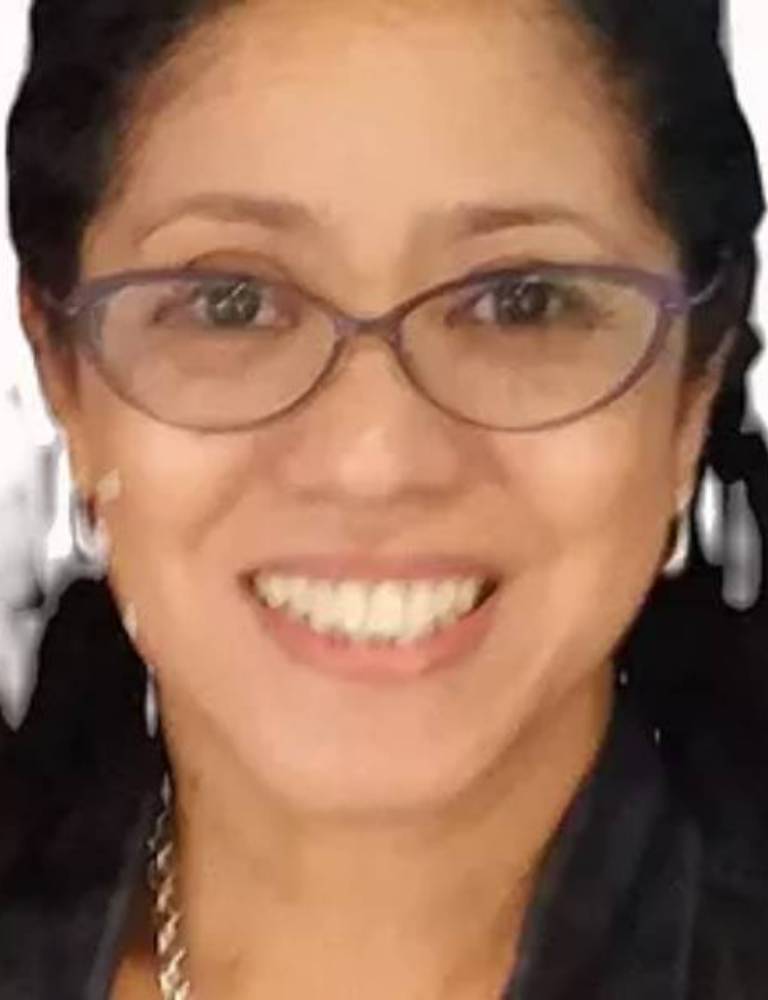
Jan is an attachment-based art psychotherapist with many years’ experience in varied mental health and educational settings, both mainstream and alternative. Jan specialises in parent-child dyadic work as well as supporting individuals struggling with mood and anxiety disorders, depression, life transitions, relationship breakdowns, and bereavement, through therapy.
Jan also provides online and face-to-face Clinical Supervision for professionals working with children with SEND and SEBD.
She is HCPC registered, a member of the BACP (British Association of Counselling and Psychotherapy)The professional association for members of the counselling and psychotherapy professions in the UK., and has an MA in Arts Psychotherapy.
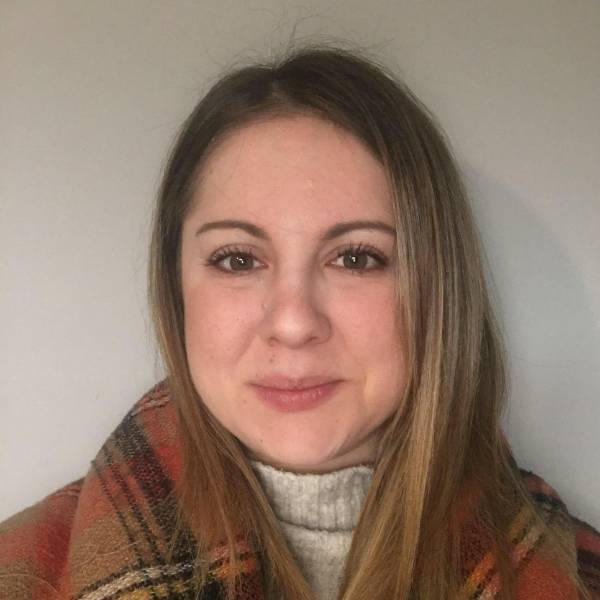
Marissa Green is a qualified professional specialising in dramatherapy, mental health, and Autism Spectrum Conditions. Marissa is Head of Impact, Outcomes and Evaluation at NeuroTribe UK, and is currently studying for a Professional Doctorate.
With experience in diverse settings, including education and Higher Education, the NHS, and mental health recovery, Marissa brings a wealth of expertise to her work.
As an Autism Specialist Practitioner trained in Adapted Cognitive Behavioural Therapy, Marissa excels in supporting neurodivergent clients. She tailors her approach to meet their specific needs, incorporating visual aids, adapting activities, and addressing sensory requirements.
In addition to her clinical work, Marissa is actively involved in lecturing on dramatherapy. She also contributes to the academic field through her publications, focusing on topics such as diversity within the Jewish community and communities of colour.
Marissa’s commitment to actively inclusive practice is paramount. With a non-judgemental stance, she creates a safe and supportive environment for her clients, valuing their uniqueness and tailoring interventions accordingly. Marissa’s ethical approach, combined with her extensive knowledge and experience, allows her to provide compassionate and effective support to individuals seeking help with their mental health and well-being.

Georgie is a BACP registered Integrative Psychotherapist with over 17 years of experience in both state and private practice and international settings.
Specialising in working with both children and adults, as well as other professionals, Georgie employs a holistic approach that blends various therapeutic techniques to cater to the unique needs of each client. Her approach to therapy is informed by a variety of theoretical orientations and evidence-based practices.
Georgie holds a Double Degree in Psychology and Social Work and a Master’s Degree in Psychotherapy and has undergone extensive training in various therapeutic modalities. She is also a qualified Doula.

Andy is an NHS-trained Psychodynamic Psychotherapist with over 21 years of experience supporting adults across public services and private practice, both in the UK and internationally. He works with a wide range of emotional and psychological challenges, including anxiety, stress, depression, addiction, ADHD, trauma, and relational difficulties.
Andy offers a warm, reflective space where clients feel safe to explore their inner world. Drawing on Psychoanalytic, Psychodynamic, CBT, and Person-Centred approaches, he tailors therapy to each individual—balancing deep emotional insight with practical strategies for change. His work often involves gently exploring past experiences to illuminate present struggles, while equipping clients with tools to reframe problems, build resilience, and foster lasting growth.
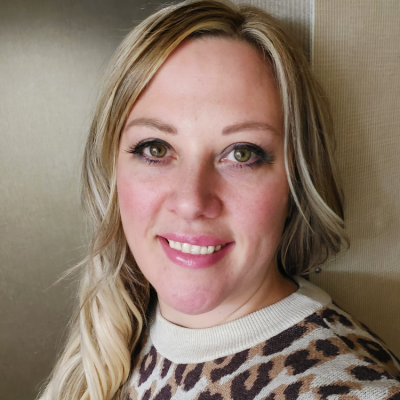
As a British-American PhD-level Counsellor, educator, supervisor, and psychotherapist, Leah’s practice integrates clinical expertise, educational leadership, and lived understanding of navigating systems across the U.S. and U.K. She brings over 15 years of international experience training, mentoring, and supporting counsellors. Her work is grounded in trauma- informed practice, neurodivergence advocacyThe act of publicly supporting or recommending a particular cause, enabling others to have their voices heard., and multicultural approaches to counselling and supervision.
Leah draws from integrative approaches, attachment theory, creative arts therapy, mindfulness, and evidence-based interventions, while always centering compassion, cultural humility, and collaboration. She works with high-performing and neurodivergentAn individual whose brain functions differently from the (usually neurotypical) perception of what is “normal”. For example, an individual with autism, Asperger’s syndrome, dyslexia, dyscalculia, dyspraxia, ADHD, OCD or Tourette Syndrome. adults, clinicians, and leaders who want to heal from trauma, reclaim their sense of self, and move toward meaningful change.
Clients can expect a balance of warmth, creativity, and direct guidance. Sessions are tailored to your goals and may involve reflective dialogue, somatic awareness, creative expression, or skills-building strategies. Leah’s work extends beyond the therapy room through consulting, teaching, and podcasting, always with a focus on equityWhen all groups are given access to the same opportunities and the specific appropriate resources for them to be able to access those opportunities: Equity recognises that the exact resources needed by each person or group to achieve equal outcomes and opportunities may differ. , inclusionThe act of including a person as part of a group with equal opportunities, equity and resources, who might otherwise be excluded or marginalised., and reimagining mental health care. Leah works with children, parents and adult clients.
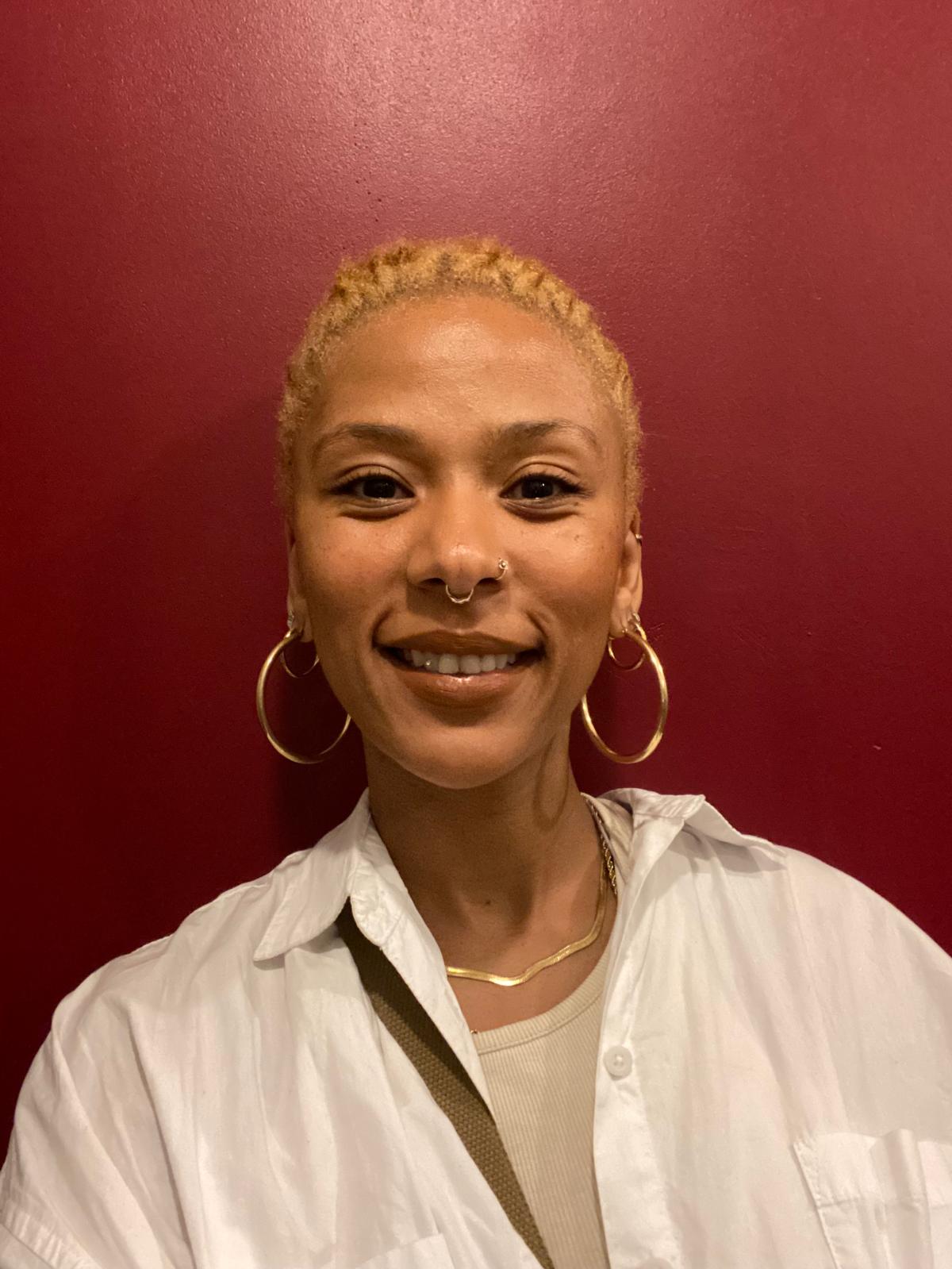
Nina is a trauma-informed and culturally responsive Creative Psychotherapist (Drama and Movement therapist), Holistic Mental Health facilitator, Author, Guest Lecturer, Artist, storyteller and generally compassionate and kind individual. Nina’s practice integrates holistic care, incorporating mind, body and soul. While supporting clients, they consider and incorporate yogic movement, somatic healing, breathwork, nutrition, psycho-education (understanding trauma and its manifestation), and nervous system awareness as part of their practice.
Nina supports clients with several issues, including racial trauma, sexual trauma, abuse, neurodiversityHow human brains and minds differ. The Neurodiversity Movement is an approach that seeks equal rights, respect and inclusion for neurodivergent people who have conditions like autism, Asperger’s syndrome, dyslexia, dyscalculia, dyspraxia, ADHD, OCD or Tourette Syndrome, anxiety, depression, suicidal ideations, relationship challenges, attachmentThe forming of a significant emotional bond with another person. trauma, developmental trauma and grief. As a therapist, they work alongside you and at your pace, and provide creative tools to explore what may sometimes feel inexplicable or unbearable. Their theoretical framework is Afro-centred and informed by the therapeutic relationship, psycho-education, Neuroscience, psychodynamic approaches, psychoanalysis, and research. They are South African-born and intersectional in their approach to therapy and when appropriate, they integrate non-Western psychological and psychospiritual theory and ritual to support clients in their exploration of self.
Nina works with teenagers (14+), Adults (18+) and Mature clients (60+).
Our aim is to create a safe, empowering space where you can address the impacts of trauma while also honouring your neurological differences. With the right support, neurodivergentAn individual whose brain functions differently from the (usually neurotypical) perception of what is “normal”. For example, an individual with autism, Asperger’s syndrome, dyslexia, dyscalculia, dyspraxia, ADHD, OCD or Tourette Syndrome. individuals can find healing, growth, and an improved quality of life. Our therapists have both lived and professional experience working with neurodivergentAn individual whose brain functions differently from the (usually neurotypical) perception of what is “normal”. For example, an individual with autism, Asperger’s syndrome, dyslexia, dyscalculia, dyspraxia, ADHD, OCD or Tourette Syndrome. clients and utilise the following trauma-focused therapy techniques, which can be particularly effective for neurodivergentAn individual whose brain functions differently from the (usually neurotypical) perception of what is “normal”. For example, an individual with autism, Asperger’s syndrome, dyslexia, dyscalculia, dyspraxia, ADHD, OCD or Tourette Syndrome. individuals:
Eye Movement Desensitisation and Reprocessing (EMDR) is a trauma-focused therapy that uses bilateral stimulation, such as eye movements or tapping, to help the brain reprocess traumatic memories. This method can be particularly beneficial for neurodivergentAn individual whose brain functions differently from the (usually neurotypical) perception of what is “normal”. For example, an individual with autism, Asperger's syndrome, dyslexia, dyscalculia, dyspraxia, ADHD, OCD or Tourette Syndrome. clients due to its structured and sensory-based approach. The predictability and pacing of EMDR sessions help manage feelings of overwhelm, making the process more manageable and less daunting.
AcceptanceThe act of taking, receiving or agreeing with something without attempting to change or protest it. and Commitment Therapy (ACT) is a cognitive-behavioural therapy that focuses on increasing psychological flexibility. It encourages clients to acknowledge and accept difficult thoughts and feelings rather than attempting to control or eliminate them. Through techniques such as cognitive defusion, mindfulness, and values-based actions, ACT helps clients engage with the present moment and pursue meaningful life activities, even when facing trauma or challenging personal experiences.
Art Therapy involves creative interventions using art materials, musical instruments, and sensory tools like weighted blankets or fidget toys. This approach helps neurodivergentAn individual whose brain functions differently from the (usually neurotypical) perception of what is “normal”. For example, an individual with autism, Asperger's syndrome, dyslexia, dyscalculia, dyspraxia, ADHD, OCD or Tourette Syndrome. clients self-regulate and stay grounded during trauma processing. By catering to their unique sensory needs, Art Therapy allows clients to express themselves non-verbally, providing an alternative and often soothing way to process difficult emotions and memories.
Trauma-Informed Cognitive-Behavioural Therapy (CBT) is an adaptation of traditional CBT, specifically designed to address trauma-related issues. It helps neurodivergentAn individual whose brain functions differently from the (usually neurotypical) perception of what is “normal”. For example, an individual with autism, Asperger's syndrome, dyslexia, dyscalculia, dyspraxia, ADHD, OCD or Tourette Syndrome. clients identify and shift unhelpful thought patterns that are connected to their traumatic experiences. By focusing on the unique challenges faced by neurodivergentAn individual whose brain functions differently from the (usually neurotypical) perception of what is “normal”. For example, an individual with autism, Asperger's syndrome, dyslexia, dyscalculia, dyspraxia, ADHD, OCD or Tourette Syndrome. individuals, this approach supports clients in developing healthier thought patterns and coping mechanisms, leading to improved emotional resilience.
With the right trauma-informed support that honours your neurodivergence, healing and growth are possible. The journey may require patience and persistence, but you deserve care that empowers you.